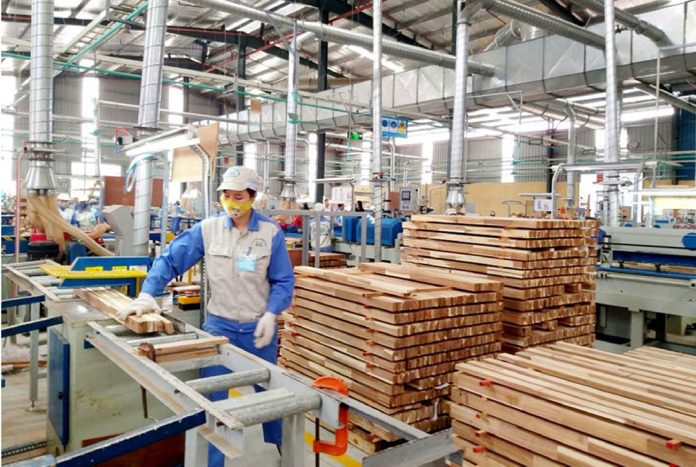HCMC – Vietnam’s wooden product export goal is US$17.5 billion this year but the Ministry of Agriculture and Rural Development (MARD) has recently said that the target may be unattainable due to the impact of typhoon Yagi.
Data from the General Department of Vietnam Customs showed that wood exports totaled US$10.24 billion in the first eight months of this year, up by 21% year-on-year.
However, at a September 24 conference on addressing the storm’s effects on the forestry industry, MARD expressed concerns about achieving the full-year export target.
Vietnam’s forestry sector faces significant setbacks after nearly 170,000 hectares of production forests were destroyed by Yagi.
The storm, which struck 26 northern provinces, also damaged numerous wood processing facilities. MARD indicated that the sector’s recovery would require substantial investment, making it tough to meet the 2024 wood and forestry product export goal of US$15.2 billion.
The Department of Forestry reported widespread losses in Quang Ninh Province and Haiphong City, where the storm disrupted the entire production chain, from seedling cultivation to wood processing, affecting both domestic and export operations.
In a related development, the Ministry of Industry and Trade (MOIT) has launched an anti-dumping investigation into wood fiberboard products imported from Thailand and China. Domestic producers have accused these imports of being sold below fair value, harming the local industry.
MOIT’s Decision 2549/QD-BCT, issued on September 25, initiated the investigation into products under several HS codes—4411.12.00, 4411.13.00, 4411.14.00, 4411.92.00, 4411.93.00 and 4411.94.00.
The case follows complaints by five domestic companies, including VRG Dongwha MDF JSC, Dongwha Vietnam JSC, MDF VRG – Quang Tri Wood JSC, Kim Tin MDF Corporation, and Kim Tin MDF Dong Phu Corporation. These firms said that dumped practices have hurt Vietnam’s wood industry.
MOIT will collect information from relevant parties on the alleged dumping, the extent of the damage to local producers, and the link between the dumping and the harm caused. Temporary anti-dumping measures could be imposed if preliminary findings show significant damage to the domestic industry.
The ministry will verify the information provided before finalizing the investigation. Public consultations will also be held, allowing stakeholders to present their views before a final conclusion is reached.









